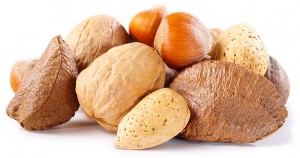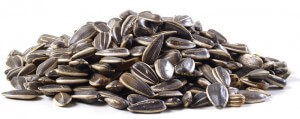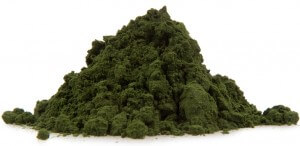Health Nut Q&A: Healthy Nuts and Ideas for Using Spirulina
 Our Health Nut and Registered Dietitian, Molly Morgan, answers our customers’ most pressing health and nutrition questions!
Our Health Nut and Registered Dietitian, Molly Morgan, answers our customers’ most pressing health and nutrition questions!
If you’d like Molly to answer one of your questions in a future blog post, please email your question to health@nuts.com. If we feature your question in The Nutty Scoop, we will also send you a pound of your favorite Nuts.com product!
It seems like there’s an ongoing debate about whether or not nuts are healthy. What is the truth about nuts? Would you recommend an individual that wants or needs to lose weight include nuts in their diet? – Andrea
Yes! Nuts are definitely healthy and I do recommend that people who are on a weight loss plan still
 include nuts in their diet because nuts are nutrient rich. One ounce of nuts has about 160 calories, but those calories deliver healthy, unsaturated fats.
include nuts in their diet because nuts are nutrient rich. One ounce of nuts has about 160 calories, but those calories deliver healthy, unsaturated fats.
Nuts also provide iron, vitamin E, calcium and other important nutrients, as well. These other important nutrients are “behind the scenes,” which means you might not find them listed on a nutrition facts label even though they are contained in the food. For example, about 20% of your daily need for magnesium (77 mg) is found in one ounce of cashews, and one ounce of sunflower seeds provides about 100 mg of magnesium. The good news about magnesium is that it can help to keep your blood pressure in check and promotes healthy bones.
 Additionally, the fats found in nuts will satisfy your appetite and help to keep you full. Nuts contain a blend of mono and polyunsaturated fats. The ratio of mono to polyunsaturated varies among varieties of nuts although, in general, a majority of the fat in all nuts is unsaturated fat. And, due to the unsaturated fats found in nuts, including them in your daily diet helps to reduced bad (LDL) cholesterol levels.
Additionally, the fats found in nuts will satisfy your appetite and help to keep you full. Nuts contain a blend of mono and polyunsaturated fats. The ratio of mono to polyunsaturated varies among varieties of nuts although, in general, a majority of the fat in all nuts is unsaturated fat. And, due to the unsaturated fats found in nuts, including them in your daily diet helps to reduced bad (LDL) cholesterol levels.
A quick tip to stretch the serving size of nuts is to make nutty popcorn: combine 1 cup of plain popped corn (only 40 calories) with 1 ounce of your favorite nuts, and snack away!
Reference:
Joan Sabaté, MD, et el. Nut Consumption and Blood Lipid Levels: A Pooled Analysis of 25 Intervention Trials. Arch Intern Med. 2010;170(9):821-827
—
We recently purchased your organic spirulina. Does it need refrigeration, how long does it stay fresh, and do you have some healthy ideas for how to use it? – Lorraine
Research shows that spirulina has been linked to inhibiting damage to cells along with acting as an anti-inflammatory agent in the body. Other reported health benefits include improvements to digestion, strengthening of the immune system, and relief from symptoms of attention deficit disorder.

As with most foods, heat and light can breakdown the nutrients in spirulina. Your best bet is to storespirulina in the Nuts.com bag in your refrigerator and reseal it well after each use. Or transfer the spirulina to an airtight container and store it in your refrigerator. If the quantity you purchased is too large to fit in your refrigerator, store it in a cool, dry place. You should be able to keep spirulina for about one year, although you’ll find that it disappears quickly with daily use!
Try to mix a teaspoon of spirulina with water or fruit juice daily. Or try mixing in one or two teaspoons with guacamole, pesto, salsas or salads. The beautiful green color of this blue green algae blends nicely with these types of foods.
References:
Hassan AM, et a. Modulation of DNA damage and alteration of gene expression during aflatoxicosis via dietary supplementation of Spirulina (Arthrospira) and Whey protein concentrate. MA Ecotoxicol Environ Saf. 2012 May;79:294-300. Epub 2012 Feb 9.
Dartsch PC.
Phytother Res. Antioxidant potential of selected Spirulina platensis preparations. Dartsch Scientific GmbH, Institut für zellbiologische Testsysteme, 2008 May;22(5):627-33.

Leave a Reply